Unani refers to a legacy of Graeco-Arabic medicine, which was developed into a complex medical system in the middle ages by Arabian and Persian physicians and is based on the teachings of Greek physician Hippocrates and Roman physician Galen.
It is a type of conventional medicine used in the Middle East and South Asian nations is known as unani-tibb or unani medicine. The Unani system of medicine provides treatment for illnesses affecting all of the body’s systems and organs, including the skin, liver, musculoskeletal and reproductive systems. One of the distinguishing characteristics of the Unani system of medicine is the use of elatives, exhilarants, aphrodisiacs, organ-specific tonics and immunomodulatory medications, temperament-specific pharmaceuticals, correctives for unpleasant effects, coctives and purgatives, etc.




